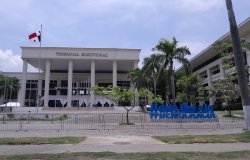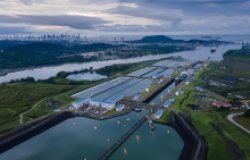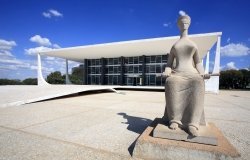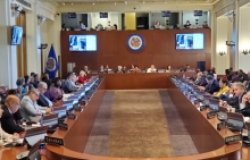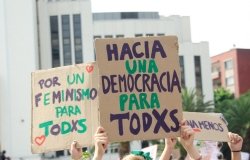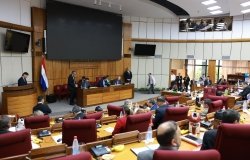
A blog of the Latin America Program
Mister Cellophane: Argentina joins EITI
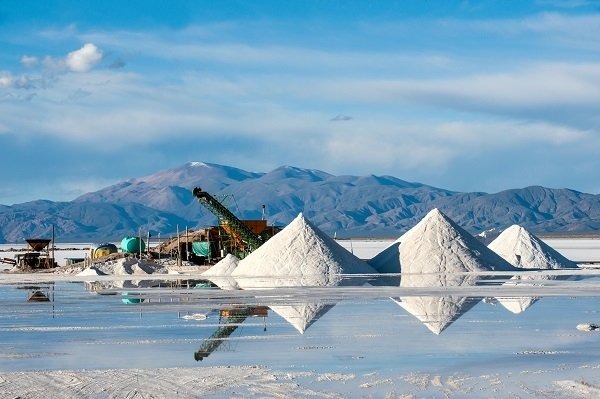
LAP
Before last year’s crisis, one of President Mauricio Macri’s strategies for attracting foreign investment was drawing global attention to the country’s underdeveloped extractive industries, including oil and gas and mining. Regrettably for the government, the country’s peso crisis, sky-high interest rates and “cuadernos” corruption scandal appear to have discouraged investors in all sectors. So far this year, stabilizing the currency has proved complicated, undermining hopes of lowering interest rates to reactivate the economy. Meanwhile, October’s presidential election has worsened country risk.
But for firms in the extractive sector, the government has made progress addressing at least one source of investor unease: corruption. Argentina recently joined the Extractive Industries Transparency Initiative, a 52-member organization that helps governments increase transparency in the typically opaque extractives sector. Argentina’s voluminous reserves of unconventional oil and gas and lithium are already drawing billions of dollars in investment. By joining the EITI, Mr. Macri hopes to reassure multinational mining companies that investing in Argentina will yield more profits than corruption investigations.
Founded in 2003, the brainchild of former British Prime Minister Tony Blair, the EITI responded in part to international uproar over “blood diamonds” and other illegal mining that financed civil wars in Africa. Those concerns remain; in Venezuela, for example, illegal gold mining has helped sustain the country’s repressive regime. The EITI’s reporting requirements are also designed to counter corruption, with submissions from both governments and private sector actors that help civil society watchdogs track government contracts and revenue from extraction.
The EITI suffered a major blow in 2017, when President Donald Trump decided to withdraw the United States – and stopped pressing allies to sign up. But just as the Trans-Pacific Partnership survived Mr. Trump’s snub, the EITI continues to expand. Although EITI membership might not win Argentina praise by the Trump administration, among energy and mining companies, Buenos Aires’s EITI disclosures will no doubt be welcome. While Mr. Macri struggles to reduce economic and political uncertainty, he has found a way to lower risks for companies attracted by Argentina’s below ground riches but fearful that the dig could dirty their reputations.
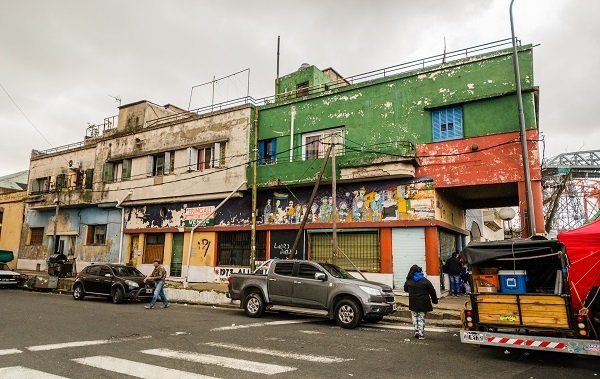
LAP
High borrowing: Unpaid (social) debt
In March, Argentina’s national statistics agency released its latest poverty data covering the second half of 2018. It painted a somber picture of Argentine society, and raised doubts about the Macri administration’s record reducing poverty.
Initially, President Mauricio Macri, elected in 2015, saw poverty decrease rapidly, from 32.2 percent to 25.7 percent by the end of 2017 – the lowest level in decades. But after the mega-devaluation of the peso last year, poverty shot up by 6.3 percentage points. Private estimates put poverty in the first months of this year at 34 percent, the largest increase in poverty since Argentina’s financial collapse in 2001. In the middle of an election year, Mr. Macri is paying a political price, as we have observed. In his first campaign, Mr. Macri, a multimillionaire, asked opponents to judge him by the poverty rate: “Este punto de partida es sobre el cual acepto ser evaluado como presidente.” The widening gap between the president’s rhetoric and the reality of poverty is an obstacle to his reelection.
That said, beyond INDEC’s headline poverty numbers, there are signs that Mr. Macri’s government has indeed produced some advancements for the poor. The Observatorio de la Deuda Social, of the Universidad Católica, recently released the latest edition of its highly respected measure of multidimensional poverty. The index – which takes into consideration factors such as access to food, healthcare, water, sewage and housing – recognizes improvements in basic services and housing over the past few years. Access to clean water, for example, has increased by 5.7 percent since 2011, and access to sewerage increased by 10.7 percent in the same period. In both cases, more than one-third of the improvements occurred under Mr. Macri. Another advance is the number of Argentines living in adequate housing, up 2.9 percent since 2011, with 70 percent of that increase occurring since 2015.
Though Mr. Macri’s government is known for its austerity policies, particularly under the $56 billion International Monetary Fund program it signed last year, the improvements in poor communities reflect significant infrastructure spending, often financed by generous loans from the World Bank and Inter-American Development Bank. Even the IMF has insisted that budget cuts spare social programs.
Nevertheless, sustainable economic growth remains the best path to improving the lives of the poor, and the Universidad Católica data is less promising in areas sensitive to the business cycle. Between 2017-2018, for example, Argentina saw large increases in the number of people without access to medicine (up 2.8 percent) and suffering from food insecurity (up 1.7 percent). These struggles are not limited to cities. According to official INDEC data, every region has seen poverty increase during the latest recession. That includes not only the northeast, traditionally a poor region, but also energy- and mineral-rich Patagonia.
But in Argentine politics, the most politically damaging trend is the increased poverty in the vote-rich conurbano of Buenos Aires, where poverty increased by four percentage points in 2018, reaching 35.9 percent. That puts at risk not only Mr. Macri’s reelection, but also the future of his close ally, Buenos Aires Governor María Eugenia Vidal, whose 2015 victory in Cristina Fernández de Kirchner’s stronghold shocked the country.
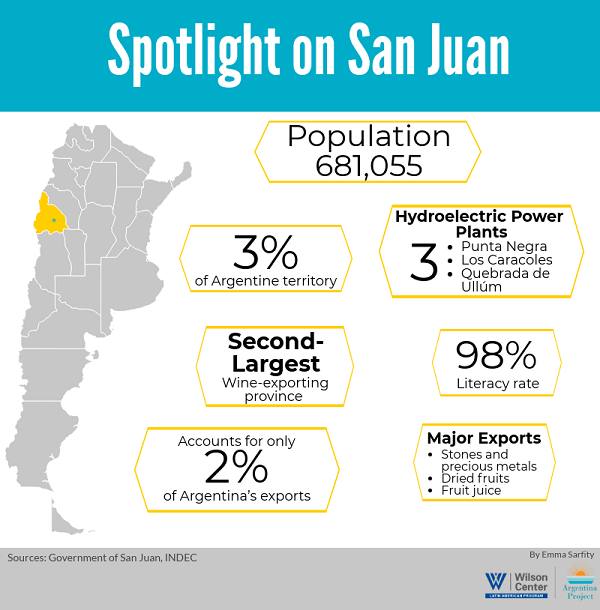
Emma Sarfity
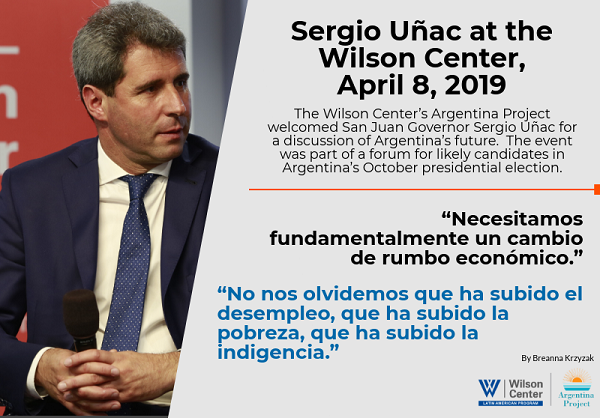
Breanna Krzyzak
Related Programs

Latin America Program
The Wilson Center’s prestigious Latin America Program provides non-partisan expertise to a broad community of decision makers in the United States and Latin America on critical policy issues facing the Hemisphere. The Program provides insightful and actionable research for policymakers, private sector leaders, journalists, and public intellectuals in the United States and Latin America. To bridge the gap between scholarship and policy action, it fosters new inquiry, sponsors high-level public and private meetings among multiple stakeholders, and explores policy options to improve outcomes for citizens throughout the Americas. Drawing on the Wilson Center’s strength as the nation’s key non-partisan policy forum, the Program serves as a trusted source of analysis and a vital point of contact between the worlds of scholarship and action. Read more

Argentina Project
The Argentina Project is the premier institution for policy-relevant research on politics and economics in Argentina. Read more
